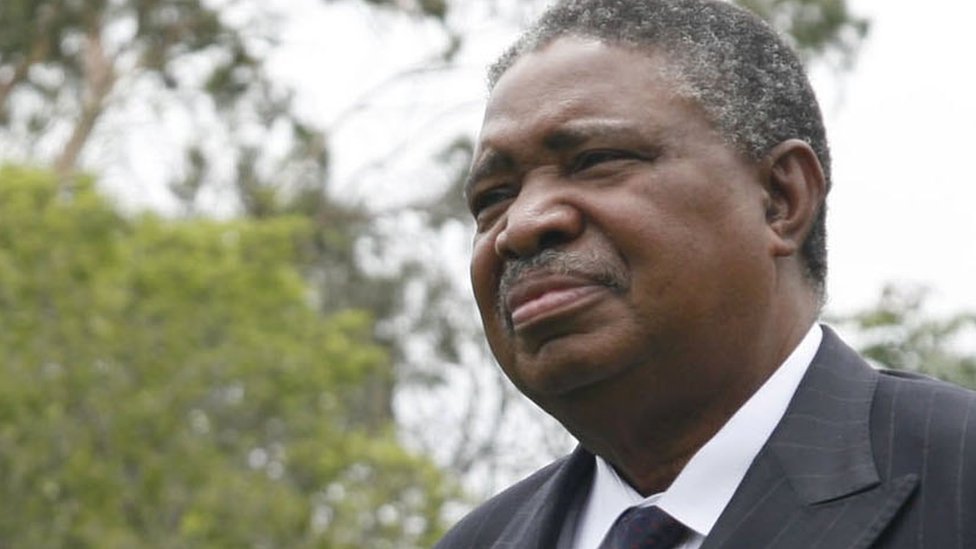By Phelekezela Mphoko
The former members of the Rhodesian special branch are the ones who claimed that I deserted the struggle in 1976, to join ZANU.
They forget that ZANU was banned in Zambia, Tanzania, and Mozambique. They were the same people who claimed that Nikita Mangena was an enemy agent. When Mangena died, they celebrated his death just like the Rhodesians.
President Kaunda offered that Nikita should be buried on a Monday which was the Zambian Youth Day but the Rhodesians within our ranks refused saying he did not deserve that honour.
When the Frontline Heads of States in October 1976 decided to abandon ZIPA, the Third force to recognise Dr Joshua Nkomo and Robert Mugabe, President Samora Machel of Mozambique offered both ZAPU and ZANU to open offices in Maputo. I was appointed in that meeting, as ZAPU’s chief representative to Maputo and Edgar Tekere was appointed ZANU’s chief representative in Maputo.
My case really exposes the Rhodesians that were operating within our ranks because I operated an operational diary with photos of some of them. But they don’t say when I rejoined ZAPU to the point that Dr Nkomo wanted to appoint me ZPRA Commander to replace Mangena. They have no explanation, as to how I was a ZPRA military delegate at the Lancaster House peace talks.
ZPRA’S delegation: Akim Ndlovu, Philip Valerio Sibanda, and Report Phelekezela Mphoko.
ZANLA’s delegation: Josiah Tongogara, Josiah Tungamirayi, and Mark Dube.
Dumiso Dabengwa, and Herbert Ushewekunze, represented the Patriotic Front political leadership at the conference. Abygirl Togwe was the conference’s stenographer.
Professor Reg Austin was our military legal advisor and Lt. General Martin Fundel, the British General was the chairman of our military conference.
When the Salisbury petrol tanks were hit, Akim Ndlovu, Dumiso Dabengwa and I were in Maputo, on our way to attend a Patriotic Front meeting in Ethiopia. On arrival in Addis, Josiah Tongogara with Tungamirai, Kadungure, Mark Dube, Chinamaropa, and Chauke, congratulated us for blowing the fuel tanks.
He made a special request that if ZPRA shoots its way to Salisbury, ZPRA, should not forget them. He informed us that they had also decided to accommodate ZPRA if they shot their way to Salisbury.
When the news of the bombing of the tanks was announced, Dabengwa, remarked, “Haa, which group could it be?” Akim expressed ignorance on the issue saying that they will get to know as soon as they get to Lusaka.
Two weeks after the Addis meeting, where Tongogara, had professed ignorance of the operations and had given credit to ZPRA. In a meeting in Dar-es-Salaam, Tongogara was a changed man. He strongly accused ZPRA of claiming their tank operations. He really went to town on the issue. If the fuel tanks operations were conducted by ZANLA, why did he congratulate ZPRA for a job well done?.
How could I have been ZANU, at the same time I received Dabengwa’s wife in Maputo, at his request, how could I receive JZ Moyo, Msika, and Silundika in Maputo, if I was ZANU?. JZ Moyo died in January 1977, when he was coming from Maputo.
When I got married on 08 October 1977, Dr Nkomo, sent a delegation led by Naison Khutshwekhaya Ndlovu to Maputo, including the late Nkhomeni Nleya and others. Do you think if I was ZANU, Jacob Zuma could have been my best man? Once again the former Rhodesian special branch members, who write ZPRA, as ZIPRA, had a mission to misinform. They were doing a job for the enemy. They are easy to identify. They emphasise these natives: ZIPRA, Special Affairs etc
ZAPU never had a Command Structure called Special Affairs. When was it created? The first military structure was The Military Planning Committee which was formed on 5 March 1965.
On the same day, in another room at the Zimbabwe House, Dumiso Dabengwa, Ethan Dube, Joseph Nyandoro, Gideon Ngoshi, Mashayamombe, and Edward Bhebhe, formed the Security Department, led by Dabengwa, as Director, called PRO.
PRO was structured along the Cheka, of the Bolsheviks, soon after the October 1917 Revolution to monitor counter-revolutionaries. Special Affairs was a code name for an armed struggle, which ZAPU was introducing whose Chairman in the President’s Office was William Mkarati. The Special Affairs Committee was announced at the COLD Comfort Farm Congress which I attended as a delegate. President Nkomo, could not have dared to announce openly at that Congress a programme of an armed struggle in Rhodesia and escape arrest


The gentleman needs some relief as he rest in his home and we need to respect that honour our former figthers